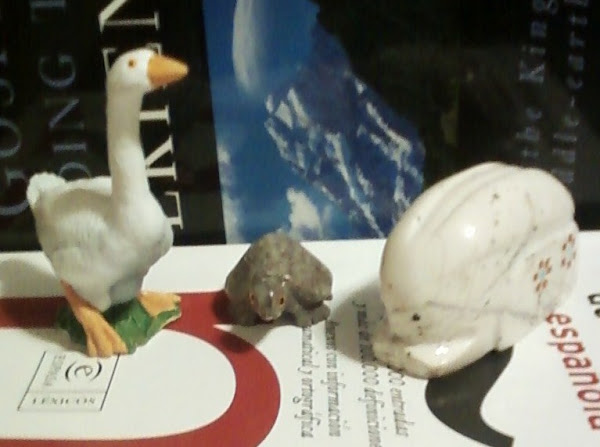Imagine that, for the purposes of an analogy, you've lived all your life knowing that what you want more than anything in the world is a teapot. (Remember, this is only for an analogy; for the best reading experience, insert your own deepest desire in your head every time I write "teapot".) You've daydreamed about teapots and tried to imagine what the best possible teapot for you would be like, but because you don't have a lot of experience with good teapots, these daydreams are pretty limited. Still, you've wanted a teapot a lot for a long time, and you've never had one; you're waiting to find that teapot that is going to be the perfect teapot for you.
So one day you're in a store with your dad and you see it. You were never sure exactly what the teapot of your dreams would be like, but once you see this one, you quickly become convinced that it has everything you ever wanted in a teapot and more. So you beg your dad to buy it for you, or let you buy it yourself, and He doesn't. You beg Him at least to promise that He's going to get you that teapot later and tell you when, and He doesn't.
And this is where we get to the point of the story. The teapot analogy is about something in particular to me, but the point that I'm trying to get to is about more than that in my life. The teapot-wanting-person (me) in this situation could blatantly disobey, or I could trust that Dad has a reason for saying no and not worry about it. Unfortunately, I could also outwardly obey, and trust part of the time, but deep down, for a long time, I might resent my Father for it and fight Him on it. Until I finally realize that I've been struggling against the wrong thing.
So the question really is, in those moments (of which there are bound to be plenty) when the will of God and the will of Hannah are in conflict, who or what does Hannah struggle against harder? Does she fight God about His will and how cruel and wrong He must be? Or does she fight her own will, her own desires, her own feelings, trying to bring them in line with His will? Does she resent God or does she say what Jesus said in the garden of Gethsemane, when He clearly did not exactly desire to go and be crucified: "Not my will but Thine be done."
Monday, September 3, 2012
Subscribe to:
Posts (Atom)

